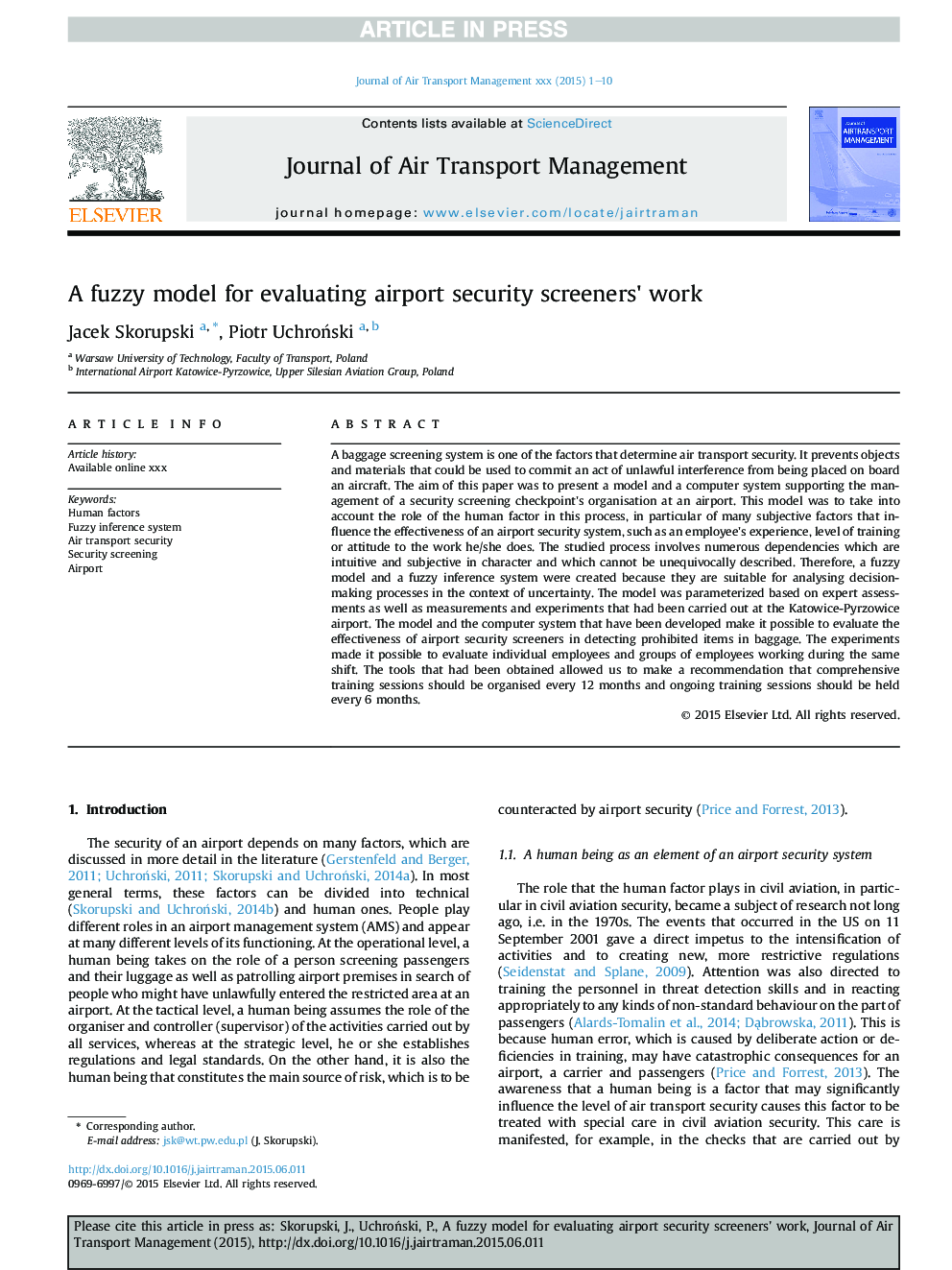| Article ID | Journal | Published Year | Pages | File Type |
|---|---|---|---|---|
| 7435648 | Journal of Air Transport Management | 2015 | 10 Pages |
Abstract
A baggage screening system is one of the factors that determine air transport security. It prevents objects and materials that could be used to commit an act of unlawful interference from being placed on board an aircraft. The aim of this paper was to present a model and a computer system supporting the management of a security screening checkpoint's organisation at an airport. This model was to take into account the role of the human factor in this process, in particular of many subjective factors that influence the effectiveness of an airport security system, such as an employee's experience, level of training or attitude to the work he/she does. The studied process involves numerous dependencies which are intuitive and subjective in character and which cannot be unequivocally described. Therefore, a fuzzy model and a fuzzy inference system were created because they are suitable for analysing decision-making processes in the context of uncertainty. The model was parameterized based on expert assessments as well as measurements and experiments that had been carried out at the Katowice-Pyrzowice airport. The model and the computer system that have been developed make it possible to evaluate the effectiveness of airport security screeners in detecting prohibited items in baggage. The experiments made it possible to evaluate individual employees and groups of employees working during the same shift. The tools that had been obtained allowed us to make a recommendation that comprehensive training sessions should be organised every 12 months and ongoing training sessions should be held every 6 months.
Related Topics
Social Sciences and Humanities
Business, Management and Accounting
Strategy and Management
Authors
Jacek Skorupski, Piotr UchroÅski,
